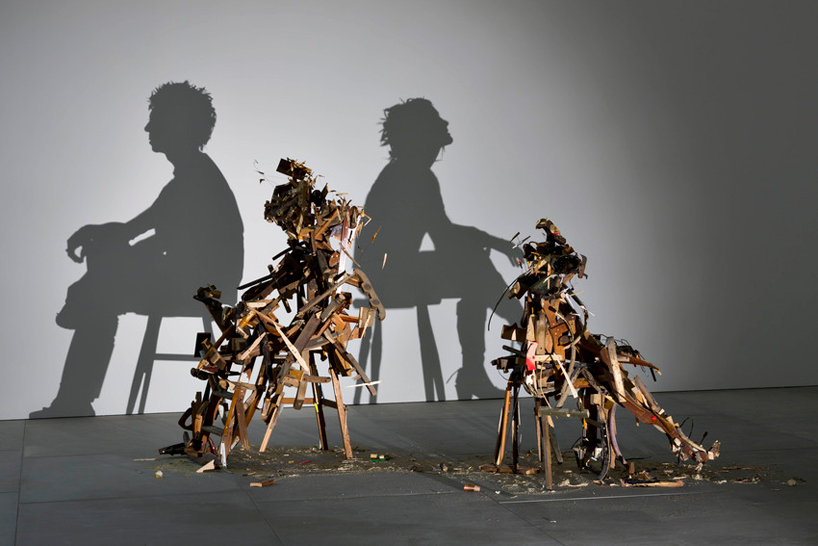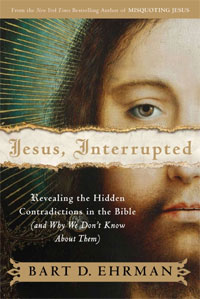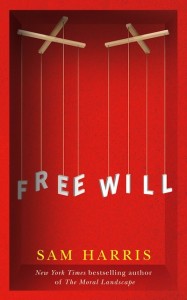In some schools of Eastern thought, the permanent, unchanging self is an illusion. A mash-up of hopes, fears, concepts, ideas, faded memories… constantly changing, never the same from moment to moment. I don’t pretend to understand this well enough to share it. But the photo below spoke to me in this context. The shadows are the clearly defined, easily recognizable “persons” we bebelieve ourselves to be. And that others do/should see. In fact, we are Erector Sets made up of all the bits and pieces that flow past, ever changing.

Category Archives: Philosophy
Thought Cloud
I’d like to have a tag cloud of my thoughts. A “thought cloud.” I think it would be useful to see a cloud representation of my thoughts. I’m thinking almost constantly, but have no real data on what I’m thinking about.
I’ve been spending a fair amount in recent years, trying to observe my thoughts. To be aware of what’s happening in my head. One of the more challenging things I’ve attempted.
But what if there were a better way to monitor my thoughts, convert them to text, and show them to me. Last hour. Last 24 hours. Last week. Month, Year, whatever.
Would I be surprised by the results? I think so. Based on my reading and personal experience, we are rarely aware of our thoughts. You can test this by trying to be aware of your thoughts for sixty seconds. Listen to that voice in your head and jot down the keywords and phrases for one minute.
Could I do anything with this information? No idea. Would I really want to know? I would.
Scott Adams: Creativity
“…all creativity comes from putting existing ideas into a mixing bowl then swirling the whole mess around to see what happens. The more ideas you are exposed to, the more likely one of your mixtures will produce something great. If you read any idea in this blog that you wouldn’t have thought on your own, your creative potential is increased. That’s a big deal because nothing of importance has ever been done without creativity. I’m motivated by the thought that I’m contributing to civilization’s creative pool.”
Thoughts without a thinker
“This is why, for Buddhism, the point is not to discover one’s “true Self,” but to accept that there is no such thing, that the “Self ” as such is an illusion, an imposture. In more psychoanalytic terms: not only should one analyze resistances, but, ultimately, “there is really nothing but resistance to be analyzed; there is no true self waiting in the wings to be released.” The self is a disruptive, false, and, as such, unnecessary metaphor for the process of awareness and knowing: when we awaken to knowing, we realize that all that goes on in us is a flow of “thoughts without a thinker.”
One’s True Self (Slavoj Žižek)
Self? What self?
“When we awaken to knowing, we realize that all that goes on in us is a flow of “thoughts without a thinker. The impossibility of figuring out who or what we really are is inherent, since there is nothing that we “really are,” just a void at the core of our being. Consequently, in the process of Buddhist Enlightenment, we do not quit this terrestrial world for another truer reality — we just accept its non-substantial, fleeting, illusory character; we embrace the process of “going to pieces without falling apart.”
Buddhism and the Self
“Unpredictable Freedom and Sweetness of Chaos”
“Embrace not knowing what will happen. This is the ultimate freedom. You don’t know what you’re going to do today, nor what will come up. You are locked into nothing. You are completely free to do anything, to pursue any creative pursuit, to try new things as they come up, to be open to meeting new people. It can be scary at first, but if you smile when you think of not knowing, you’ll soon realize it’s a joyous thing.”
“When you’re not focused on one outcome, you open the possibility for many outcomes. Most people are focused on specific goals (outcomes), and relentlessly pursue that outcome. They then dismiss other possibilities as distractions. But what if you have no predetermined outcome? What if you say that anywhere you end up could be good? You now open an infinite amount of possibilities, and you’re much more likely to learn something than if you only try to do the things and learn the things that support your predetermined outcome.”
Free Will by Sam Harris
Sam Harris is the author of the New York Times bestsellers, The End of Faith, Letter to a Christian Nation, and The Moral Landscape. Mr. Harris is a Co-Founder and CEO of Project Reason, a nonprofit foundation devoted to spreading scientific knowledge and secular values in society. He received a degree in philosophy from Stanford University and a Ph.D. in neuroscience from UCLA.
A lot of my reading over the last few years has touched on the idea of free will. Real or illusory? I’ll confess that it sure feels as though I have free will. But the more I read about the subject… and think about it… the less certain I am.
The intention to do one thing and not another does not originate in consciousness — rather, it appears in consciousness, as does any thought or impulse that might oppose it.
Some moments before you are aware of what you will do next — a time in which you subjectively appear to have complete freedom to behave however you please — your brain has already determined what you will do. You then become conscious of this “decision” and believe that you are are in the process of making it.
I cannot decide what I will next think or intend until a thought or intention arises.
You are not controlling the storm, and you are not lost in it. You are the storm.
Unconscious neural events determine our thoughts and actions — and are themselves determined by prior causes of which we are subjectively unaware.
The next choice you make will come out of the darkness of prior causes that you, the conscious witness of your experience, did not bring into being.
You are no more responsible for the next thing you think (and therefor do) than you are for the fact that you were born into this world.
You can decide what you decide to do — but you cannot decide what you will decide to do.
My choices matter — and there are paths toward making wiser ones — but I cannot choose what I choose.
What I will do next, and why, remains, at bottom, a mystery — one that is fully determined by the prior state of the universe and the laws of nature (including the contributions of chance).
Take a moment to think about the context in which your next decision will occur: You did not pick your parents or the time and place of your birth. You didn’t choose your gender or most of your life experiences. You had no control whatsoever over your genome or the development of your brain. And now your brain is making choices on the basis of preferences and beliefs that have been hammered into it over a lifetime — by your genes, your physical development since the moment you were conceived, and the interactions you have had with other people, events, and ideas. Where is the freedom in this?
You will do whatever it is you do, and it is meaningless to assert that you could have done otherwise.
“All self-images are false”
“Intuition is direct, subjective knowledge of an aspect of the present moment — knowledge by direct contact with the experience. Knowing you plan to be awake at 9am tomorrow is conceptual knowledge, thinking-based knowledge. Recognizing that you are awake right now is intuitive knowledge.”
David Cain clearly explains things I can barely get my mind around.
Jesus, Interrupted
 The full title of the book is: Jesus, Interrupted: Revealing the Hidden Contradictions in the Bible (And Why We Don’t Know About Them). The author, Bart D. Ehrman, began studying the Bible and its original languages at the Moody Bible Institute and is a 1978 graduate of Wheaton College in Illinois. He received his PhD and M.Div. from Princeton Theological Seminary, where he studied under Bruce Metzger. He received magna cum laude for both his BA in 1978 and PhD in 1985.
The full title of the book is: Jesus, Interrupted: Revealing the Hidden Contradictions in the Bible (And Why We Don’t Know About Them). The author, Bart D. Ehrman, began studying the Bible and its original languages at the Moody Bible Institute and is a 1978 graduate of Wheaton College in Illinois. He received his PhD and M.Div. from Princeton Theological Seminary, where he studied under Bruce Metzger. He received magna cum laude for both his BA in 1978 and PhD in 1985.
I have not read the Bible and — before reading this book — knew almost nothing about it from an historical, scholarly perspective. Here are a few excerpts I highlighted:
The New Testament, consisting of twenty-seven books, was written by maybe sixteen or seventeen authors over a period of seventy years.
…
A Christianity dependent on the inerrancy of the Bible probably cannot survive the reality of the discrepancies.
…
Since the nineteenth century, scholars have recognized that Mark was the first Gospel to be written, around 65-70 CE. Continue reading
Words create words, reality is silent
Most of the words I utter in the course of a day just aren’t that necessary. Sure, I have to communicate with co-workers and friends, but that requires far fewer words than I was using. A lot of my recent reading has tugged me in this direction, most recently a collection of conversations titled, I Am That. An excerpt:
“The moment you start talking you create a verbal universe, a universe of words, ideas, concepts and abstractions, interwoven and interdependent, most wonderfully generating, supporting and explaining each other and yet all without essence or substance, mere creations of the mind. Words create words, reality is silent.”
If that’s too woo woo for you, here’s George Carlin:
“More than half of what comes out of your mouth in that client presentation is mindless, pointless, idiotic sounding, space-filling blather. Don’t you want meetings to be shorter? Aren’t you sick of fake words that mean nothing? Wouldn’t you rather be actually creating something rather than killing it with the boatload of words you throw at it before you ever show it to the client? Of course you would. So stop talking like an idiot.”
I’d love to have a transcript of every conversation I had for 24 hours. I’d highlight just the stuff that needed to be said. What percent do you think that might be?


